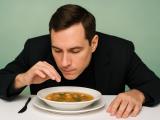Why the morning is important for fat loss
When we wake up in the morning, our body has fasted through the night (mostly without food), allowing our organs to clean out the system and eliminate leftovers from dinner. During this time, insulin levels (the hormone that helps glucose or sugar move from the blood into the cells) are very low. This is an opportunity for the body to start using energy stores, mainly fat, instead of immediately using sugar from food.
But if you immediately fill your blood with sugar by eating a piece of bread, sweet pastry, a banana, or juice, insulin spikes, and then the body uses fresh energy instead of fat stores. So, if you want your body to start burning its reserves, the morning offers that chance.
Does this mean: skip breakfast?
Not necessarily. It all depends on what you want to achieve. If you’re not planning an intense morning workout, it might make sense to start your day slowly (water, tea, coffee without sugar) so your body isn’t instantly prompted to release high levels of insulin.
But beware: research shows that regularly skipping breakfast is not risk-free.
A Korean study found that those who don’t eat breakfast have a 1.42-times higher risk (42% higher) of insulin resistance than those who eat breakfast 5 to 7 days a week.
Multiple meta-analyses (analyses of several studies) show that children and adolescents who skip breakfast are more likely to be overweight (59% more than those who regularly eat breakfast).
Meta-analyses have also shown that skipping breakfast can lead to slight weight loss—on average about 0.66 kg less than for those who don’t skip breakfast.
Another study that monitored the effects of skipping breakfast states that the weight loss is mainly from people spontaneously eating fewer calories throughout the day in such situations.
At the same time, the same study points out that the long-term benefits of skipping breakfast have not been proven.
So, skipping breakfast may help reduce calories in the short term, but long-term it brings risks.
Is breakfast still the big meal of the day?
The opposite view is also prevalent: that a better distribution of calories over the day (more energy in the morning, less in the evening) is preferable.
A study, the Big Breakfast Diet, found that if you eat a high-energy meal in the morning (mostly carbohydrates and calories) and less in the evening, insulin sensitivity improves, meaning the body better manages blood sugar and reduces post-meal glucose levels.
Another study showed that a protein-rich breakfast decreases blood sugar spikes after breakfast as well as after lunch and dinner.
A study conducted among people with type 2 diabetes also showed that a high-protein breakfast results in a 16% lower spike in glucose (blood sugar) and a 9.5% lower spike in insulin than a classic breakfast.
And another interesting fact: those who eat more calories in the morning showed more weight loss and better insulin sensitivity.
So: if you’re going to eat breakfast, make sure it’s well thought out—with protein, less fast sugar, and not too heavy.
What to do at home in practice
Here are some tricks coming from traditional remedies, improved with scientific findings:
- Morning liquid before food
In the morning, on an empty stomach, drink a glass of warm water, optionally with lemon or a teaspoon of honey (if you can’t go without sugar). This gently wakes up the digestion and doesn’t cause a dramatic insulin spike.
- Breakfast with protein + local grains
Instead of sweet cereals, pastry, or fruit juices, prepare a simple combination: some eggs (fried, scrambled, or boiled), grains (whole grain bread or buckwheat porridge), and a piece of fruit with a low glycemic index. This combination determines how quickly sugar from food appears in the blood. Examples of such fruit: apple, pear, plum…
Protein not only helps maintain blood sugar levels but also prevents your body from reaching for carbohydrates immediately.
- Move more food to the morning
If you usually eat a lot in the evening, try the opposite: breakfast as the main meal and a light, smaller dinner. This follows the concept of eating more when you’re more active. It aligns with the idea that the body functions better with more energy in the morning than in the evening.
- Pay attention to gaps between meals
If you start the day slower, you might skip or shrink lunch. You can set a time window when you eat (for example, from 10 am to 6 pm). But be careful: if you skip meals, don’t let it derail your overall nutrition quality for the day.
- Move after breakfast
After eating, go for a light walk for 10 to 15 minutes. Movement helps the body use blood sugar. This is an old folk custom and is confirmed by research.
When is breakfast necessary (and when not)
If you exercise intensely in the morning (running, gym), you need a small amount of protein + carbs to fuel up and not miss out on your workout.
If your goal is fat loss, you can wait with heavy food in the morning and start your day with liquids, planning breakfast when your body has already run out of sugar.
If you have diabetes or other metabolic diseases, it makes sense to consult your doctor as skipping breakfast may carry risks in specific cases.
What the experts say: there’s no one recipe for all
The media love drama, so they say: breakfast is the most important meal of the day! Or: skip breakfast and lose weight! But research shows the effects are small and individual-dependent.
As with everything else, the key to success is balance. Don’t believe in absolute statements like “always breakfast” or “never breakfast.” Rather, believe that breakfast should be adapted to your day, your goals, and your sensitivity to sugar.
In any case, start the morning with something light (water, tea), wait, and if you feel comfortable, continue with a stronger breakfast (proteins, grains, and a piece of fruit). If you feel a craving for sweets or an energy dip after breakfast, try reducing the amount of sugar the next day.
With this approach, you’ll take advantage of the morning opportunity without burdening your body with unnecessary stress.









 Would you like to be informed about news on the website?
Would you like to be informed about news on the website?

